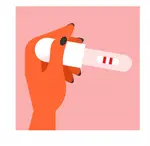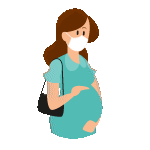There are no second thoughts about the fact that pregnancy is an amazing journey and an amazingly rewarding one at that too! However, it can also get quite overwhelming and confusing at times without a doubt! What with all the information that various sources like the internet and the various magazines decide to dish out, this feeling of confusion only increases! It is always good to have all the information you can get during your pregnancy, but when this information starts clashing with one another, that is where things start getting tricky.
Of course, most of the women know that eating a few things in particular like sea-food that is high in mercury is a total no-no during pregnancy, however what they don’t know is that some common nutrients and even herbal supplements are not all that great to consume during this time. Here is our list of the supplements that you should be consuming and the one you shouldn’t to ensure a healthy and safe pregnancy.
Safe Supplements
Prenatal Vitamins
We are sure that you are already aware of this and also know how important prenatal vitamins are for the development of your baby! Specifically formulated to ensure that it helps mothers meet the increased nutrient need prior to, during and post her pregnancy, prenatal vitamins are one of the most important supplements that your doctor will also suggest you take. Of course, just because you are taking these vitamins does not mean that you do not concentrate on consuming a healthy diet which is a non-comprisable.
Iron
Did you know that the quantity of your blood increases by 50% when you are pregnant? That is exactly what calls for the increase’s intake of iron as well. You see, iron happens to be an extremely important nutrient when it comes to making sure that your baby grows healthy and develops at the right pace. Apart from that, iron also happens to be extremely important to transport oxygen to the baby too. Iron also helps prevent anaemia in pregnant women effectively.
Vitamin B9
Popularly also known as Folate, the nutrient plays an extremely important when it comes to the synthesis of DNA and red blood cells production apart from helping I all round foetal growth and development. Talk to your doctor or healthcare provider to find out how much folate is good for you and many units you should be taking in a day.
Other safe supplements
- Magnesium
- Vitamin D
- Fish Oil
- Ginger
Unsafe Supplements
Vitamin E
Vitamin E is a fat-soluble vitamin that usually plays really important role in the body like various immune functions that other nutrients do not do. However, during pregnancy, doctors recommend that women not take the nutrient as it has been associated with increased risk of abdominal pain and it might even lead to the rupture of the amniotic sack!
Vitamin A
Known for helping combat issues such as night blindness and being quite good for the development of foetal vision, a little too much of this nutrient can actually prove to be harmful for both the mother and her child. As vitamin A is also a fat-soluble vitamin, the body ends up storing the excess amount in the liver. This accumulation is one that can lead to issues in the liver to say the least.
Apart from this, excess amounts are also known to cause birth defects in babies. So, once you are aware about which supplements are good and bad for you, have a talk with your doctor and design a diet routine according to your need and wat and incorporate these supplements in your daily intake.
FAQ's
Q. Why is pregnancy considered both rewarding and overwhelming?
Ans.Pregnancy is an amazing journey filled with joy and anticipation, but it can also be confusing. Conflicting information from the internet, magazines, and social circles may overwhelm expecting mothers. Having accurate guidance from healthcare providers ensures a safe, informed, and rewarding experience while navigating dietary, lifestyle, and supplement choices.
Q. What are prenatal vitamins, and why are they important?
Ans.Prenatal vitamins are specially formulated supplements designed to meet increased nutrient needs before, during, and after pregnancy. They support fetal growth, brain development, and maternal health. While essential, they do not replace a balanced diet. Regular intake, as recommended by a doctor, ensures both mother and baby receive vital nutrients.
Q. How does iron help during pregnancy?
Ans.Iron is crucial for producing extra blood, which increases by 50% during pregnancy. It transports oxygen to the baby, supports healthy growth, and prevents maternal anemia. Adequate iron intake ensures proper fetal development and maternal energy levels. Foods and supplements rich in iron are recommended under medical supervision.
Q. Why is Vitamin B9 (Folate) important?
Ans.Vitamin B9, or folate, is essential for DNA synthesis, red blood cell production, and overall fetal growth. It helps prevent neural tube defects and supports healthy brain development. Expecting mothers should consult their doctor to determine the right dosage to ensure proper intake for both maternal and fetal health.
Q. Which other supplements are considered safe during pregnancy?
Ans.Magnesium, Vitamin D, fish oil, and ginger are generally safe when taken under medical supervision. They support bone health, immunity, fetal brain development, and digestion. However, dosage and frequency should be guided by a healthcare professional to avoid any potential complications during pregnancy.
Q. Why is Vitamin E considered unsafe in pregnancy?
Ans.Vitamin E, while important for immunity, can pose risks during pregnancy. High doses are linked to abdominal pain and may increase the risk of amniotic sac rupture. Doctors typically advise avoiding Vitamin E supplements unless specifically prescribed, as it could compromise maternal and fetal safety.
Q. How can excessive Vitamin A harm pregnancy?
Ans.Vitamin A supports vision and immune function, but excess intake is dangerous. Being fat-soluble, it accumulates in the liver and may cause liver problems. High doses can also result in birth defects. Expecting mothers should avoid supplements with high Vitamin A content and follow doctor-recommended amounts.
Q. Can herbal supplements be safely taken during pregnancy?
Ans.Some herbal supplements like ginger may be safe for digestion and nausea relief. However, not all herbal products are safe, as certain compounds can harm fetal development or trigger complications. Always consult a healthcare provider before incorporating any herbal supplement into your pregnancy routine.
Q. How should I design my supplement routine during pregnancy?
Ans.A safe supplement routine involves consulting a doctor to identify nutritional needs, selecting medically approved supplements, and balancing intake with a healthy diet. Personalized guidance ensures you meet daily requirements without overconsumption, supporting maternal health and optimal fetal development throughout pregnancy.
Q. Why is consulting a doctor essential before taking supplements?
Ans.Not all supplements are safe for pregnancy; excessive intake of some nutrients can cause complications or birth defects. A doctor can recommend safe doses, suitable combinations, and necessary adjustments based on individual health conditions, ensuring both maternal well-being and proper fetal growth throughout pregnancy.




















